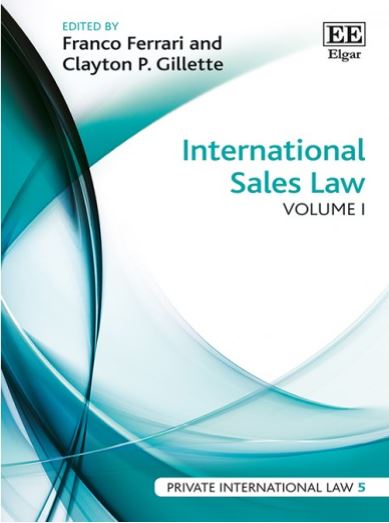
This authoritative collection presents carefully selected scholarly articles that describe and examine the principles of international sales law, as set forth in the United Nations Convention on Contracts for the International Sale of Goods (CISG). These seminal pieces reflect various viewpoints of authors from different countries and legal systems, and offer a range of distinct methodological approaches to legal analysis. Together with an original introduction by the editors, these volumes provide the reader with both an international and an interdisciplinary perspective on the CISG and its application.